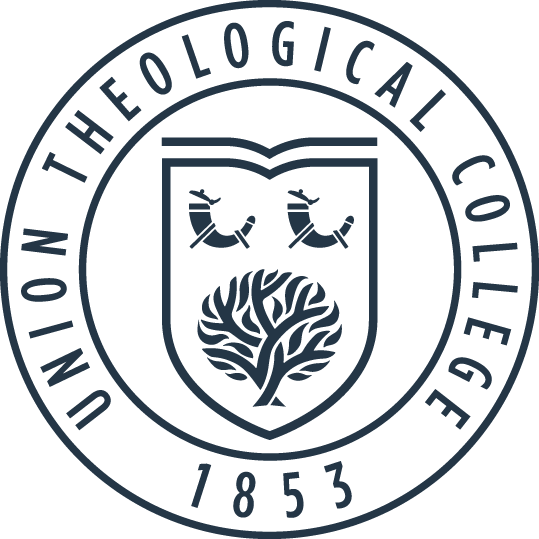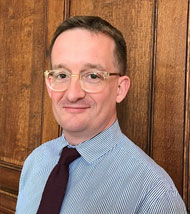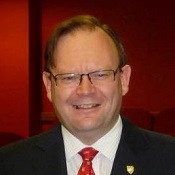Master of Arts in Theology

Delivered by the BibleMesh Institute by means of a collaborative agreement, this taught Masters allows students to gain advanced theological knowledge of central Christian doctrines. The Diploma is available for those who complete the teaching modules without the dissertation.
This programme aims to:
- enable students to focus in appropriate depth on a variety of different topics within the subdisciplines of Christian Theology and ethics;
- provide a digital space in which students may engage in informed and respectful dialogue, recognising the strengths and weaknesses of other points of view;
- provide the knowledge and skills necessary to produce a research dissertation through sustained reflection on and engagement with a theological or ethical topic; and
- develop an appreciation of the value of Christian doctrine for the life of the Church.
Whether you’re studying online or on site, all of Union Theological College’s degrees are marked by strict academic standards approved by the Faculty and regulated by the Quality Assurance Agency for Higher Education (QAA). Online study is subject to the same entry requirements as our on–campus degrees: there is no difference in the overall workload, and the qualification you get is of equal value.
The difference is simply in the way in which the course is delivered. As well as all the conventional benefits of taking your theological education to a new level, our new online programme has some particular benefits associated with it:
- Earn a recognised UK master’s degree (or postgraduate diploma) from almost anywhere in the world (there are no residential requirements)
- Have access to the teaching of leading theologians
- Flexibility to study at a time and a pace that best suits your own needs
- Learn as part of a rich and diverse online community
How This Degree Programme Works

Apply
Apply today online at the link below

Study Online
Enroll and complete all six modules online

Complete Capstone
Write a 6,000-8,000 word dissertation

Earn Degree
Receive a Masters in Theology from Union
MA in Theology Interest Meeting Webinar
- Discover why we created this MA programme
- Find out full programme details
- Determine if this is the right fit for you
- Get a list of recommended reading to help you prepare for this programme.
Register Interest
We’ll send you more information about the programme, a recent webinar recording, and details about the next upcoming webinar.
Programme Details
The BibleMesh platform delivers content and allows you to interact with faculty and students. For every taught module this virtual learning environment provides video lectures, discussion forums, digital copies of textbooks and core primary readings. You will also benefit from the Cerego app, an online memory-building tool for your desktop, tablet or mobile device that builds on the latest in cognitive science to help you learn faster and remember longer.
MA in Theology
Using a wide range of digital resources, this taught Masters allows students to gain advanced theological knowledge of central Christian doctrines.
- 6 required modules and 1 dissertation (180 credits)
- Programme delivered fully online
- MA in Theology awarded
Modules in this Programme
1
Doctrine of God
Theology is the study of God and all things in relation to God. In this module students reflect on the the divine attributes and what it means to speak of God as one in three persons. Special attention is given to Thomas Aquinas and the great British Reformed scholastic theologians of the seventeenth-century who produced the Westminster Confession of Faith.
2
Christology
Christology heeds the scriptural exhortation to ‘fix your eyes on Jesus.’ In this module the fifth century debates leading to the council of Chalcedon receive particular attention. Students will consider the work of Athanasius and Cyril of Alexandria.
3
The Holy Spirit
The Holy Spirit is ‘the Lord, the giver of life.’ This module provides students with the space to reflect on the person and work of the Holy Spirit. Particular attention is given to the Holy Spirit’s work in regeneration and the nature of God’s gracious presence in his people is carefully examined with a careful reading of work of Jonathan Edwards.
4
Salvation
The theme of this module is union with Christ and all the benefits that flow from that union. Particular attention is is given to the doctrine of justification by faith alone with students examining its scriptural basis and the work of prominent theologians such as Martin Luther.
5
Christian Ethics
How then should we live? What is the place of God’s law? What does it mean to be sanctified? How should Christians speak into culture and the political arena? What is wisdom? The study of these great questions provides the basic outline for this module. Students will engage with the ethical thought of the Dutch Reformed tradition.
6
Eschatology
This module allows students to address questions about God’s purpose in history, the intermediate state, and the last things. The importance of careful theological biblical exegesis and theological reflection help students address the greatest question of all – who is on the right side of history? Students will reflect on the significance of John Calvin’s teaching on providence.

Dissertation | Research Project
The feedback on your essays and other written work will have helped you to nurture your critical research and writing skills in preparation for the 6,000-8,000 word capstone dissertation. In this module you will have freedom to write on an area of your own special interest in theology.
Schedule & Fees
| Term | Option 1 | Option 2 |
| 2023 Autumn | Doctrine of God | Holy Spirit |
| 2024 Spring | Christology | Salvation |
| 2024 Autumn | Holy Spirit | Eschatology |
| 2025 Spring | Ethics | Doctrine of God |
| 2025 Autumn | Salvation | Christology |
| 2026 Spring | Eschatology | Holy Spirit |
| 2026 Autumn | Doctrine of God | Ethics |
| 2027 Spring | Christology | Salvation |
Fees information
Tuition fees are subject to annual revision and are typically increased by approximately 4% per annum for programmes longer than one year. For part-time intermittent study, the fees are payable for each module as you study (payable 6 weeks in advance of each module).
MA in Theology:
- Programme Fee: All Students
- Per Module: $1,404
- For Dissertation: $1,404
- Programme Total: $9,828
- Fee information is subject to change and is for guidance only.
Current Modules:
–
Upcoming Modules:
– Doctrine of God and Holy Spirit (Autumn 2023)
Admissions Requirements
Please check you meet all the entry requirements for this programme before you submit an application. Application is made via our partners at BibleMesh
Typically, a 2.1 honours degree or above or equivalent qualification acceptable to PTFI where Theology and/or Divinity is the main subject area OR where it is one of the joint subjects in an honours degree. In the case of the latter, the modules in Theology and/or Divinity must be of 2.1 level or above, OR a 2.1 honours degree or equivalent qualification acceptable to PTFI in a subject other than Theology/Divinity, and a Graduate Diploma in Theology with normally at least 5 out of the 6 modules with a mark of 60% or above.
Note: For overseas students a 2.1 honours degree is normally equivalent to a Cumulative Grade Point Average of 3.3 or higher from an accredited institution.
Normally we require all applicants whose first language is not English to have one of the following qualifications as evidence of their English language ability:
- An undergraduate or master’s degree that was taught and assessed in English in a majority English-speaking country as defined by UK Visas and Immigration (this includes the Union GradDip and GradCert)
- International English Language Testing System (IELTS) Academic module (not General Training): overall score of 7.0 with at least 6.5 in each category (this is our preferred test)
- Pearson Test of English, (PTE Academic): 69 overall with a minimum of 62 in each communicative skill
- Cambridge English Scale (CAE or CPE): 185 overall, with a minimum of 176 in each skill
- TOEFL iBT: 100 overall with a minimum of 24 in writing and 23 in each of the other skills
For those whose first language is not English please note the following:
- Degrees taught and assessed in English must be no more than three years old at the beginning of your degree programme.
- Language tests must be no more than two years old at the beginning of your degree programme.
The application deadline is 31 days prior to the course start date but we recommend that you submit your application as soon as possible.
- This must include your name and date of birth exactly as they appear on your passport and your correspondence address during the application process
- This should take the form of a document of one or two pages highlighting your academic achievements and any relevant experience.
- Ideally an essay submitted for assessment in your most recent qualification
- The piece should be around 2,000 words in length (excluding references and bibliography)
- It will be used to assess your ability to engage in critical thinking and to construct and defend an argument.
- (300-400 words) in which you provide a personal statement explaining your motivation for applying for this particular programme as either a full-time or part-time student
- At least one of which must be an academic reference
- Professional (institutional or organisational) email addresses should be used whenever possible
- In the ‘role’ field of the application form you should enter the referee’s position – that may be their job title (e.g. Director of Studies, Personal Tutor, or Head of Department) or their position relative to you (e.g. Line Manager or Minister)
- Your references should outline your intellectual ability, academic achievement, motivation, and ability to engage in self-motivated study.
- These must be verified official transcripts that provide your full academic history of courses taken and grades achieved (a degree certificate is not equivalent to a transcript)
- If you are currently a student who has not yet completed your degree please provide an interim transcript of your degree progress and achievement to date (in this case we will consider your application on a conditional basis)
- If these documents are not in English an official English translation must be supplied with full contact details either the professional translator, the institution that issued the transcript or the authorised notary.
Language tests must be no more than two years old at the beginning of the degree programme. You must submit evidence that you meet the College’s English language requirement for your course, if:
- your first language is not English, or
- your first language is English but you are not a national of a majority English-speaking country recognised by UK Visas and Immigration (UKVI) i.e.:
- Antigua and Barbuda
- Australia
- The Bahamas
- Barbados
- Belize
- Canada
- Dominica
- Grenada
- Guyana
- Ireland
- Jamaica
- New Zealand
- St Kitts and Nevis
- St Lucia
- St. Lucia and the Grenadines
- Trinidad and Tobago
- United States of America
- You do not need to prove your knowledge of English if you have completed a qualification degree qualification in the UK of a qualification equivalent to a UK degree in:
- Antigua and Barbuda
- Australia
- The Bahamas
- Barbados
- Belize
- Canada
- Dominica
- Grenada
- Guyana
- Ireland
- Jamaica
- New Zealand
- St Kitts and Nevis
- St Lucia
- St. Lucia and the Grenadines
- Trinidad and Tobago
- United States of America
- For further details please see https://www.gov.uk/tier-4-general-visa/knowledge-of-english
- One of the following documents to confirm your identity, name and date of birth:
- A copy of the photo page of your valid passport (this is our preferred option)
- A copy of a national identification card or driving licence
- If you have changed your name you must supply evidence e.g. a marriage certificate
- Upon submission of your application you will be supplied with details of how to pay a non-returnable application fee of $75.
Scholarship Opportunities
Those awarded a Benevolence Scholarship may receive a discount of up to 30%. These scholarships are for those who can demonstrate financial need.
Those awarded a Ministerial Scholarship may receive a discount of up to 30%. These scholarships are for those in ministry or training for service who can demonstrate financial need.
Frequently Asked Questions
The MA is designed and kept under constant review by the Faculty of Union Theological College. Students on this programme are concurrently enrolled as BibleMesh Institute students and Union Theological College students. All BibleMesh Institute tutors are ‘recognised teachers’ at UTC. This partnership is designed to allow as many people as possible to study theology at United Kingdom Master’s Level. The degree you will receive is from The Presbyterian Theological Faculty, Ireland.
As an alternative to traditional residential study, online learning offers flexibility and utilises the best in digital learning resources while retaining high-level academic oversight and accountability.
Our online MA offers the same high standards of teaching assessment and award as its campus-based equivalents.
Your degree certificate will be identical to the degree certificates received by students who have completed their study on campus in Belfast. There is no distinction between the two programmes on the diplomas.
The MA is open to applicants who want to take the course as their first formal theological qualification. Typically applicants will have an undergraduate degree, but please contact us to discuss your eligibility.
The General Assembly of the Presbyterian Church in Ireland has had a theological training institution in Belfast since 1853. Initially called Assembly’s College, it was later renamed Union Theological College by Act of Parliament. In 1881 the college was awarded a Royal Charter empowering it to grant its own degrees in theology. This authority resides in the theological professors of the college who together constitute the Presbyterian Theological Faculty, Ireland (PTFI). Union Theological College programmes are awarded by this body.
The PTFI is recognised as a university under UK law and the work of the college is regulated by the independent body that maintains standards within UK higher education sector and by the Council for Training in Ministry of the Presbyterian Church in Ireland.
The CATS (Credit Accumulation and Transfer Scheme) points system is recognised by Union, and most other UK Higher Education institutions, as a method of quantifying credit within academic programmes, functioning as something of a common currency. According to this system, one UK credit point equates to ten notional hours of study. For American students, please note that there is no exact correspondence between the UK and the US system. Credit hours are based on the time spent in class each week over a semester and our system is based on the total hours of study to be undertaken in a module or programme. Conversion between credit hours and UK credit points is not straightforward but, as a rough and inexact rule of thumb, for American students: 10 CATS credit points broadly are equivalent to 3 US credit hours; and 20 CATS credit points broadly are equivalent to 5 US credit hours. Credit points convert to European academic credits (ECTS) as follows: 10 CATS credit points are equal to 5 ECTS credits; and 20 CATS credit points are equal to 10 ECTS credits.
- Programme Fee: All Students
- Per Module: $1,350
- For Dissertation: $1,350
- Programme Total: $9,450
- Fee information is subject to change and is for guidance only.
The BibleMesh platform will provide you with digital copies of each module’s textbook core primary readings. You will also have access to the e-book collection of Union College’s Gamble Library. Some other books may have to be purchased.
In UK higher education a full-time postgraduate course is designed to involve the same time commitment as full-time employment, so taking on a part-time degree is like taking on a part-time job. All of this is calculated by way of CATS points (Credit Accumulation and Transfer Scheme). The taught modules in our Masters programme are weighted at 25 CATS points. Our programme is designed to offer real flexibility with teaching occurring over a 12-week semester and students having a further three weeks to submit their final long written piece of work. Students work at different rates, but you would technically need to allow for 20 notional hours of work per week during any given semester.
There are six compulsory core modules to the taught portion of the programme, plus the capstone dissertation. If you do not complete the dissertation, you will receive the Diploma in Theology rather than Master of Arts in Theology degree.
For the taught modules students can expect to watch a number of video lectures and engage in directed reading assignments. There will be online tests or quizzes, discussion forums, the Cerego learning app and written assignments. You will also have access to a number of books through the BibleMesh e-reader and the e-books of the Gamble Library at Union.
The full-time course lasts twelve months. The part-time course may be completed in a period of time between two to four years.
While you study with us, you will be well supported by the programme team with a wide variety of additional one-to-one support.
Every student will be:
- Guided through the matriculation process and the course schedule
- Supported in becoming a confident, active member of the online learning community
- Assisted with any concerns or problems that might affect your studies
Students access materials, discussion forums and a range of learning tools via the Virtual Learning Environment. Our platform is designed to be easy to use and we incorporate familiarisation training into the programme induction. Additionally, BibleMesh will provide tech support.
You will also be able to take advantage of digital library access to the e-books in Union’s Gamble Library.
MA in Theology students are also provided with a dissertation tutor to support them in the final three months of the preparation of their 6000-8000 word research project.
Benevolence and Ministerial scholarships are available. Scholarship applications can be submitted only after formal acceptance into the programme. The application is available here.
Please email our programme administrator at institute@biblemesh.com, and he will be happy to try to help you.
Endorsements




About Union Theological College
Union Theological College in Belfast, Northern Ireland, has a history of providing theological education that stretches back to the founding of the original Presbyterian College there in 1853. The College’s primary task is to prepare students for ministry in contemporary Ireland. Union also welcomes students from all backgrounds and perspectives to study Christian theology at undergraduate and postgraduate level in a community of faith and scholarship.
